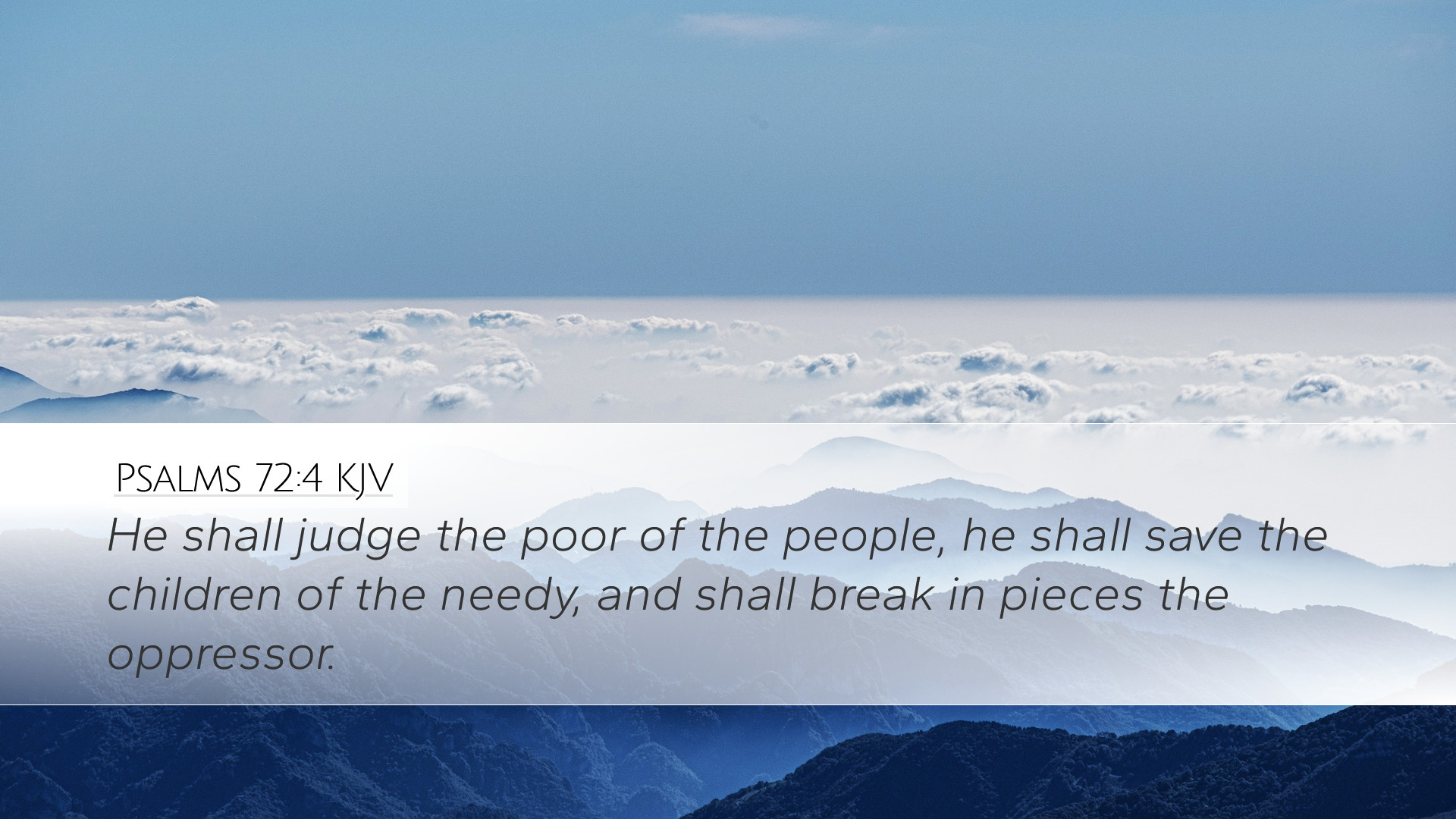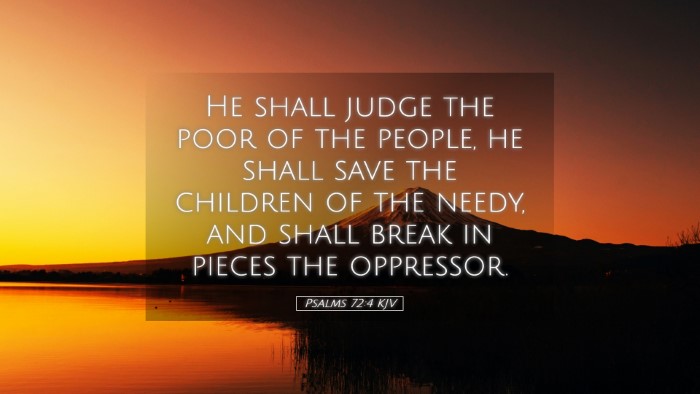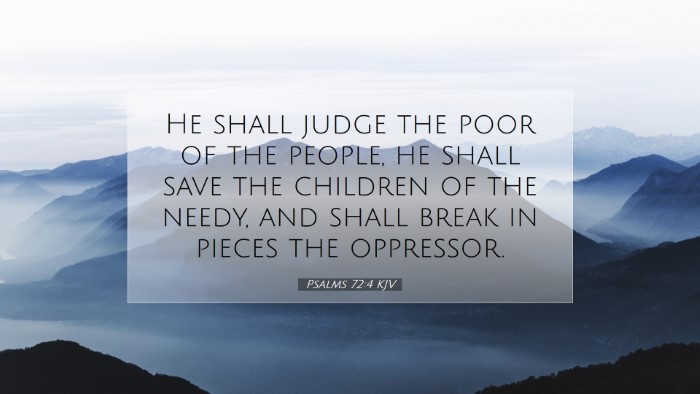Psalms 72:4 - A Commentary
Text of Psalms 72:4
"He shall judge the poor of the people, he shall save the children of the needy, and shall break in pieces the oppressor."
Introduction
Psalms 72 is attributed to Solomon and expresses a deep longing for the coming of a just ruler who would administer justice, provide support to the needy, and establish equity among the oppressed. This particular verse encapsulates the heart of God’s concern for justice and the protection of the marginalized in society.
Theological Significance
This verse speaks profoundly to several key theological themes, including social justice, divine judgment, and redemptive mercy. As noted in public domain commentaries, the implications of these themes are essential for understanding God's character and His expectations for human leaders.
1. Justice for the Poor
“He shall judge the poor of the people”
Matthew Henry emphasizes that the ruler’s role is primarily to defend the rights of the poor. This is not merely a matter of social justice but an essential function of a good governmental body. The poor, being vulnerable, often lack the means to receive fair treatment. Thus, the ruler is tasked with ensuring equity. Henry argues that this judicial function mirrors God’s own character as a protector of the underprivileged.
2. Salvation for the Needy
“He shall save the children of the needy”
Albert Barnes provides insight into the word "save," which implies deliverance not just from physical harm but from spiritual degradation as well. The children of the needy represent both literal children and the broader population of those who are destitute. Barnes posits that this salvation is hopeful, indicating a transformative ministry that extends beyond mere material assistance, focusing instead on a restoration of dignity and purpose.
3. Confronting Oppressors
“And shall break in pieces the oppressor”
Adam Clarke notes that this phrase reflects divine retribution against those who exploit the weak. The imagery of breaking in pieces emphasizes the severity of God’s judgment against injustice. Such actions demonstrate God’s commitment to not only defend the oppressed but also confront evil aggressively. This part of the verse reminds us that God’s justice will ultimately prevail against all forms of oppression.
4. Implications for Leadership
This verse challenges current leaders and those in positions of power. It sets a divine standard against which leaders are to measure their conduct. From a pastoral perspective, it is a call to action for church leaders and clergy to advocate for social justice. Matthew Henry suggests that this verse can inspire leaders to cultivate compassion and earnestness in the defense of the marginalized.
5. Application in Contemporary Society
In today’s context, this verse continues to resonate with the fight against economic disparity and systemic oppression. The church, serving as the body of Christ, is called to fulfill aspects of this verse by engaging in social action that mirrors the heart of God expressed in Psalms 72:4. The alignment of church activism with the biblical mandate demonstrates a vibrant faith that seeks to enact justice.
Conclusion
Psalms 72:4 serves as a profound reminder of God’s justice and mercy. It urges leaders and believers alike to pursue equity actively and to protect those who cannot protect themselves. By understanding the imperative presented in this verse, pastors, theologians, students, and all believers are equipped to serve their communities, mirror God’s heart, and work toward a just society where the needy experience true salvation and liberation from oppression.
Key Takeaways
- The verse emphasizes God’s commitment to justice and care for the poor.
- Roles of authority include protecting and providing for the most vulnerable.
- God's judgment against oppressors is a central theme in this passage.
- Leaders are called to engage in active compassion and advocacy for justice.
- The implications of this verse extend to contemporary social justice movements.


